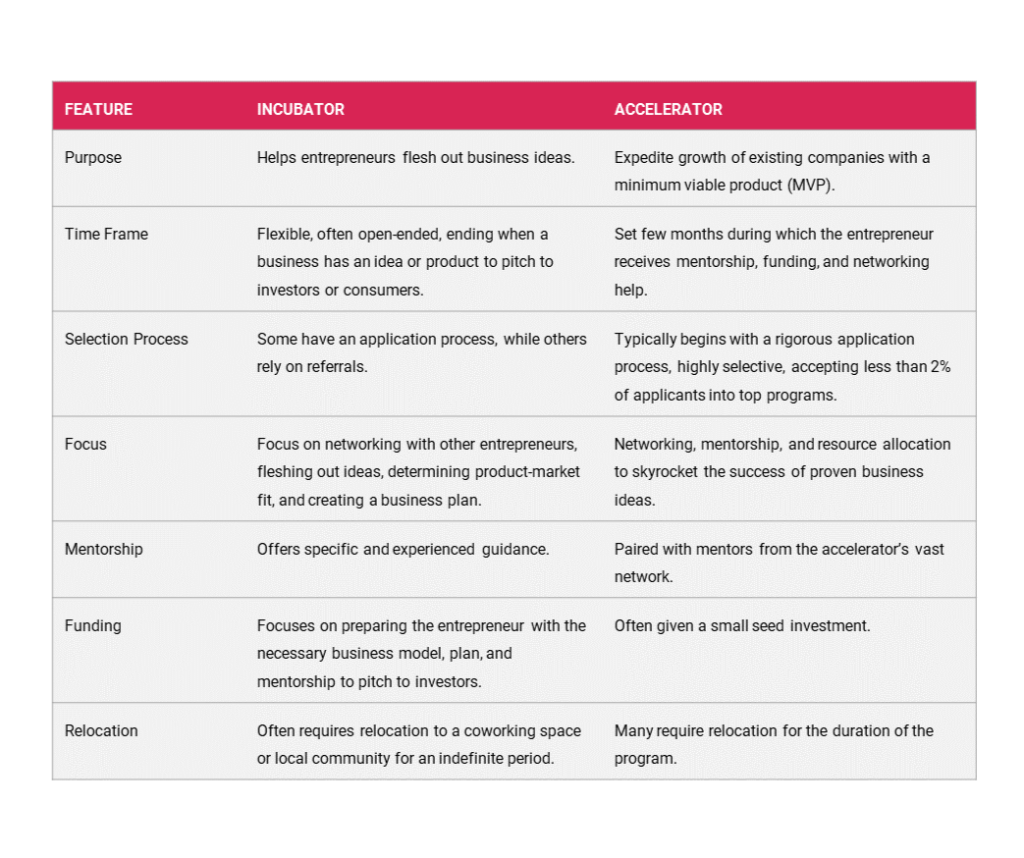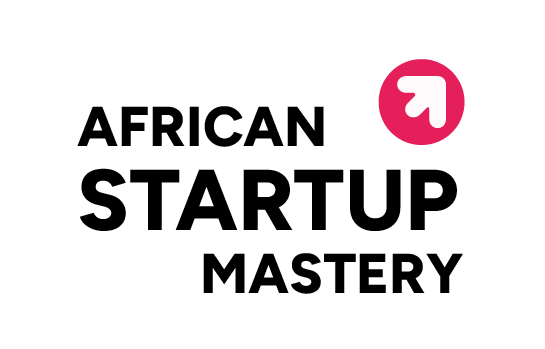Building a startup can be isolating, even with a team, customers, and supportive friends. The journey often leads founders into a place where they’re left to navigate growth challenges alone.
Fortunately, programs like startup accelerators are designed to offer the guidance and support that can help founders thrive.
In this guide, we’ll explore what startup accelerators are, how they work, and whether joining one is the right move for your business.
What Is a Startup Accelerator Program?
Startup accelerator programs have gained significant traction in recent years as a proven way for entrepreneurs to fast-track their businesses.
These programs, often backed by angel investors, venture capital firms, corporations, universities, or even governments, are designed to help early-stage startups grow rapidly.
Typically, accelerators offer a combination of mentorship, education, networking opportunities, access to investors, and sometimes funding—usually in exchange for equity.
These programs, often cohort-based and run for a fixed term, provide startups with the resources and support needed to accelerate growth and increase their chances of success.
Imagine an accelerator as a nursery for young plants—nurturing startups until they’re ready to thrive independently in the marketplace. Founders have the chance to test their business models, assess strengths and weaknesses, and refine their strategies, all within a guided environment.
How Accelerators Differ from Incubators
While accelerators and incubators both support startups, they serve different functions and are structured differently in terms of focus, duration, and funding.
Focus: Accelerators work with startups that already have traction and are ready to scale, while incubators focus on idea-stage startups, helping entrepreneurs shape their concepts from the ground up.
Timeframe: Accelerators are short-term programs, typically lasting three to six months, whereas incubators provide long-term support that can last up to two years.
Funding: Accelerators often invest seed funding in exchange for equity. Incubators, on the other hand, provide resources like office space and mentorship, rarely offering direct capital investment.
In summary, accelerators are geared toward fast-tracking startups that have already begun their journey, while incubators focus on nurturing ideas into viable businesses.
How Do Startup Accelerators Work?
Startup accelerators follow a structured process that involves application, mentorship, funding, and networking. If you’re considering joining an accelerator, here’s a breakdown of what to expect:
1. Application and Selection: The first step is submitting an application detailing your team, product, market, and growth strategy. If selected, you’ll join a cohort of startups.
2. Funding: Most accelerators offer seed funding in exchange for a percentage of your company’s equity, with funding amounts ranging from a few thousand dollars to over $100,000.

3. Education and Mentorship: Startups are paired with experienced mentors and industry experts who provide valuable insights and guidance. You’ll also attend workshops and seminars covering key business areas such as product development, market strategy, and fundraising.
4. Networking: Accelerators offer startups access to investors, industry leaders, and potential partners. This exposure can significantly boost your network and open doors for future funding.
5. Demo Day: At the program’s conclusion, startups have the opportunity to present their business to investors, stakeholders, and partners at a pitch event known as Demo Day.
6. Post-Program Support: Many accelerators continue to support their alumni with ongoing mentorship and access to valuable resources.
Top Accelerator Programs to Consider
Here are some of the most notable startup accelerators:
Y Combinator: Based in Silicon Valley, Y Combinator has backed major success stories like Airbnb, Stripe, and Flutterwave. It runs twice-yearly programs that have helped over 4,000 startups with a combined valuation exceeding $600 billion.
Techstars: Known for fostering startups like Remitly and Chainalysis, Techstars provides a mentorship-driven, three-month program. With a portfolio valued at over $99 billion, Techstars has supported more than 50 African startups.
500 Global: Formerly known as 500 Startups, this venture capital firm has backed 35 unicorns, including Canva and Shiprocket. Its four-month accelerator focuses on helping startups scale across 20 countries.
Plug and Play: As an early-stage investor, Plug and Play has nurtured companies like PayPal and Google. The accelerator specializes in connecting startups with industry-specific investors and resources.
What Do Top Accelerators Look For?
If you’re aiming for a spot in one of the top accelerator programs, understanding what they look for is key. Here are a few common factors:
- Market Potential: Accelerators seek startups with ideas that can capture a significant share of a large, growing market.
- Differentiation: A clear competitive edge, whether through product innovation, cost efficiency, or customer experience, is crucial to stand out.
- Traction: Programs often prefer startups with some level of validation, whether through revenue, user growth, or strategic partnerships.
- Scalable Business Model: Accelerators are drawn to startups that can grow quickly and disrupt their industries.
- Strong Team: A capable, committed team with diverse skills is one of the most important assets accelerators look for.
- Coachability: Founders who are open to feedback and willing to pivot when necessary are highly favored.
Is It Worth Joining an Accelerator?
While joining an accelerator can provide invaluable resources and connections, it’s not the right path for every startup. Consider the pros and cons:
Pros:
- Access to funding and mentorship
- Opportunities to network with investors and industry leaders
- Structured programs that fast-track growth
- Validation and credibility in the startup ecosystem
Cons:
- Loss of equity, leading to reduced control over your company
- Intense workload and potential relocation requirements
- One-size-fits-all approach that may not suit every startup
If the trade-offs don’t align with your startup’s goals, alternatives like bootstrapping, applying for grants, or seeking angel investors may be better suited for your needs.
How to Choose the Right Accelerator
Not all accelerators are created equal. Here are some factors to consider when selecting the right program:
- Specialization: Choose an accelerator that aligns with your industry for maximum relevance.
- Fit with Your Business: Ensure the accelerator can address your specific needs and goals.
- Reputation: Top-tier accelerators like Y Combinator and Techstars offer better mentorship and access to investors, giving you a higher return on your time and effort.
Final Thoughts
For many entrepreneurs, startup accelerators can be a game-changer, offering the resources, mentorship, and connections needed to scale their businesses.
If you’re an aspiring founder looking to take your startup to the next level, joining an accelerator could be the key to unlocking your company’s full potential.
Share the article


Leave a Reply